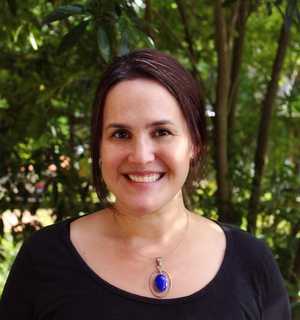Today, we are happy to bring you our conversation with Sara Jensen Carr, author of THE TOPOGRAPHY OF WELLNESS: How Health and Disease Shaped the American Landscape.
*************
What inspired you to write this book?
I started my professional career at an architecture firm in New Orleans working on healthcare facilities, and became very interested in research on how the design of these spaces affected health outcomes. After Hurricane Katrina hit the city, I realized in the midst of the recovery and conversations about New Orleans’s future that the urban landscape not only affected health, but was where two other primary crises of our time—climate change and racial justice—intersected. While I’m not a trained historian, this book was for me a way to better understand the landscape we inhabit, and ultimately, how we can make it healthier and more equitable.
What did you learn and what are you hoping readers will learn from your book?
It was eye-opening to see how much of this history of the urban landscape has acute effects we still encounter on a daily basis. I think for the most part people are unaware of how much the built environment, especially the public realm, influences everyday behavior, which in turn has impacts on well-being. Transportation options are dictated by the design of roads and sidewalks, and access to parks and other green spaces can have positive effects on mental health. At the same time, many detrimental policies, including the destruction of immigrant and Black neighborhoods via urban renewal and polluting freeways, hand in hand with restrictive covenants meant to keep immigrants and Black populations out of “healthy” neighborhoods, are a key factor in understanding health disparities today.
What surprised you the most in the process of writing your book?
I turned in the final draft of the manuscript in February 2020, just before the COVID-19 pandemic hit the United States. Despite doing research on this topic for well over a decade, I didn’t foresee how much the virus would upend all of our lives. When I ultimately rewrote the introduction and conclusion to reflect on COVID’s impact, it was fascinating to see how much of what I had written was urgently relevant to what we were witnessing in real time, from the ways that changing fears of contagion shaped the environment in ad hoc ways, to the surfacing of latent racism related to disease and the renewed discussion of the curative nature of green space.
What’s your favorite anecdote from your book?
This is not a specific anecdote, but I did find it fascinating to see how many physicians advocated for environmental change in the late nineteenth and early twentieth centuries, from the building of safe housing and ventilated schools to the planning and design of parks. The support of the medical profession was so crucial to the success and acceptance of the landscape’s effect on health, and I hope those sorts of partnerships between the design, planning, medical, and public health fields will become common practice again, especially in light of the complex health challenges we face today.
What’s next?
Honestly, experiencing a pandemic in real time while trying to process what it all means in a historical context has been a bit existentially exhausting, not only as a scholar but as a mother of three young kids. I’m taking a moment to recover, recalibrate, and just think about what’s next. In the meantime, I’m engaged in a few projects examining the impact of climate change on health, from the mental health burden it places on young adults to how the built environment can mitigate the effects of extreme heat in underserved neighborhoods. Whatever I do, I hope to apply my experience and expertise to begin seeing a real impact in my own communities and beyond.





